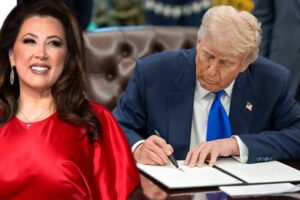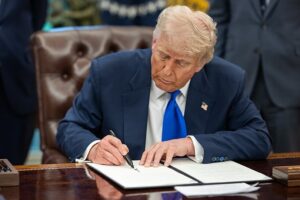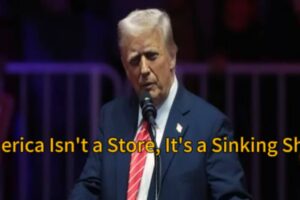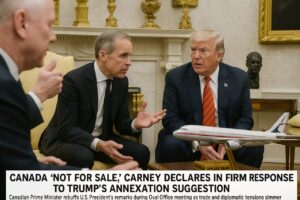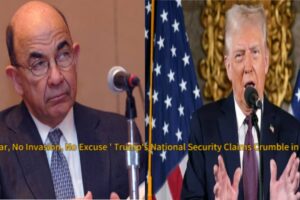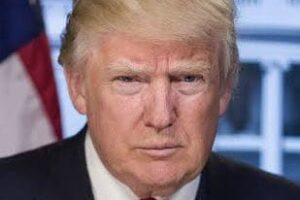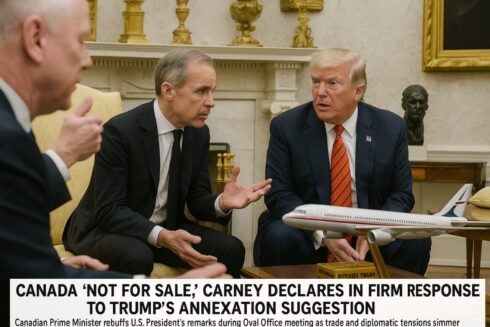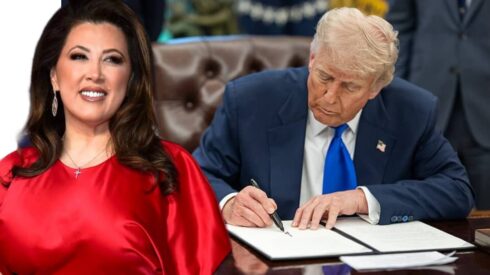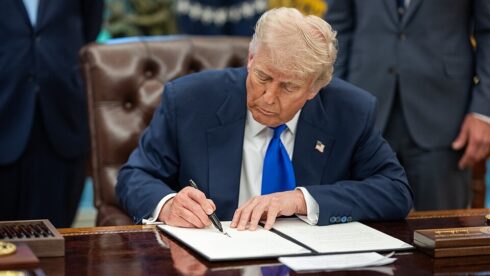Canadian Prime Minister Mark Carney delivered an emphatic message during a high-profile Oval Office meeting on Tuesday, declaring that Canada “is not for sale, it won’t be for sale, ever.” The firm statement came in response to President Donald Trump’s renewed musings about the idea of Canada becoming part of the United States, remarks that many observers see as both provocative and symbolic of the increasingly strained ties between the two allies.
President Trump, speaking to reporters moments before Mark’s declaration, had described the border between the U.S. and Canada as an “artificial” line, expressing admiration for a “beautiful formation” of a unified North America. “As a real estate developer, I’m a very artistic person,” Trump quipped, hinting at what he called the “tremendous benefits” of a “wonderful marriage” between the nations. Carney, seizing on Trump’s real estate analogy, retorted pointedly: “As you know from real estate, there are some places that are never for sale.”
Trump Keeps Door Open, Despite Canadian Resistance
Despite Carney’s unequivocal rejection of annexation, President Trump refused to dismiss the idea altogether. “Never say never,” he told reporters when asked if Carney’s position would complicate trade or diplomatic discussions. Trump insisted that his administration remained committed to maintaining strong ties with Canada, adding, “Regardless of anything, we’re going to be friends with Canada.”
However, the president made it clear that Carney’s stance would not lead to any immediate shifts in U.S. policy—especially on trade. “There’s nothing he could say today that would lift tariffs,” Trump stated, referencing the 25% import tariff on certain Canadian goods enacted earlier this year. Carney, calling trade negotiations a “bigger discussion,” said progress would only be announced once a comprehensive deal was reached.
Strained Relations Amid Tariffs and “51st State” Talk
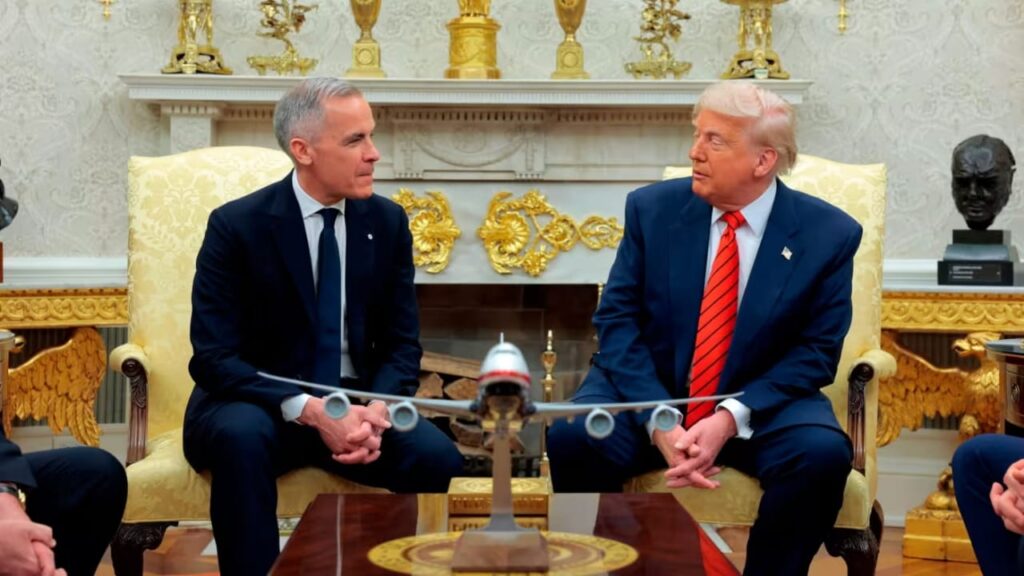
The meeting underscored ongoing tensions between the neighboring countries, particularly over Trump’s imposition of tariffs and his occasional references to Canada as the “51st state.” Carney told reporters he had personally asked Trump to refrain from using the term, calling it “unhelpful” as both sides work to resolve trade disputes. “We’re focused on building a partnership, not a merger,” Carney emphasized.
Trump’s tariffs, which took effect March 4, have been a significant flashpoint. The administration cited concerns over fentanyl and migration flows across the northern border as justification for the import taxes, though Carney and other Canadian leaders have pushed back against such claims. Canada responded with retaliatory tariffs targeting American goods, escalating the economic standoff.
Broader Agenda: Trade, Security, and Shared Challenges
Despite the tensions, Carney described the Oval Office discussions as “wide-ranging and constructive.” He indicated that the leaders touched on global security challenges, regional cooperation, and the broader economic relationship between the two countries. “It’s the sign of a healthy relationship when we can discuss both our disagreements and shared priorities,” Carney told reporters at a press conference held at the Canadian embassy following the meeting.
Looking ahead, Carney confirmed plans to continue negotiations in the coming weeks, including a face-to-face meeting with President Trump at the upcoming G7 summit in Kananaskis, Alberta. He acknowledged that Canadians have more work to do in explaining why U.S. tariffs are not only harmful to Canadian industries but detrimental to American consumers and workers as well.
A Redefined Relationship: Carney Calls for Economic Rethink
In his remarks, Carney hinted at a broader shift in Canada’s approach to its southern neighbor, suggesting that the long-standing model of deepening economic integration may be at an end. “We must fundamentally reimagine our economy in light of the new tariff regime,” Carney said, echoing sentiments he had shared in his victory speech earlier this year.
The prime minister reiterated that Canada’s dealings with the Trump administration would proceed “on our terms” and stressed the importance of building resilience against external economic shocks. Meanwhile, Trump, speaking later in the day, described the meeting as “very good,” even as he reiterated his belief that the U.S. holds the upper hand economically. “They need everything from us,” Trump posted on social media, “but we’ll always be friends.”


